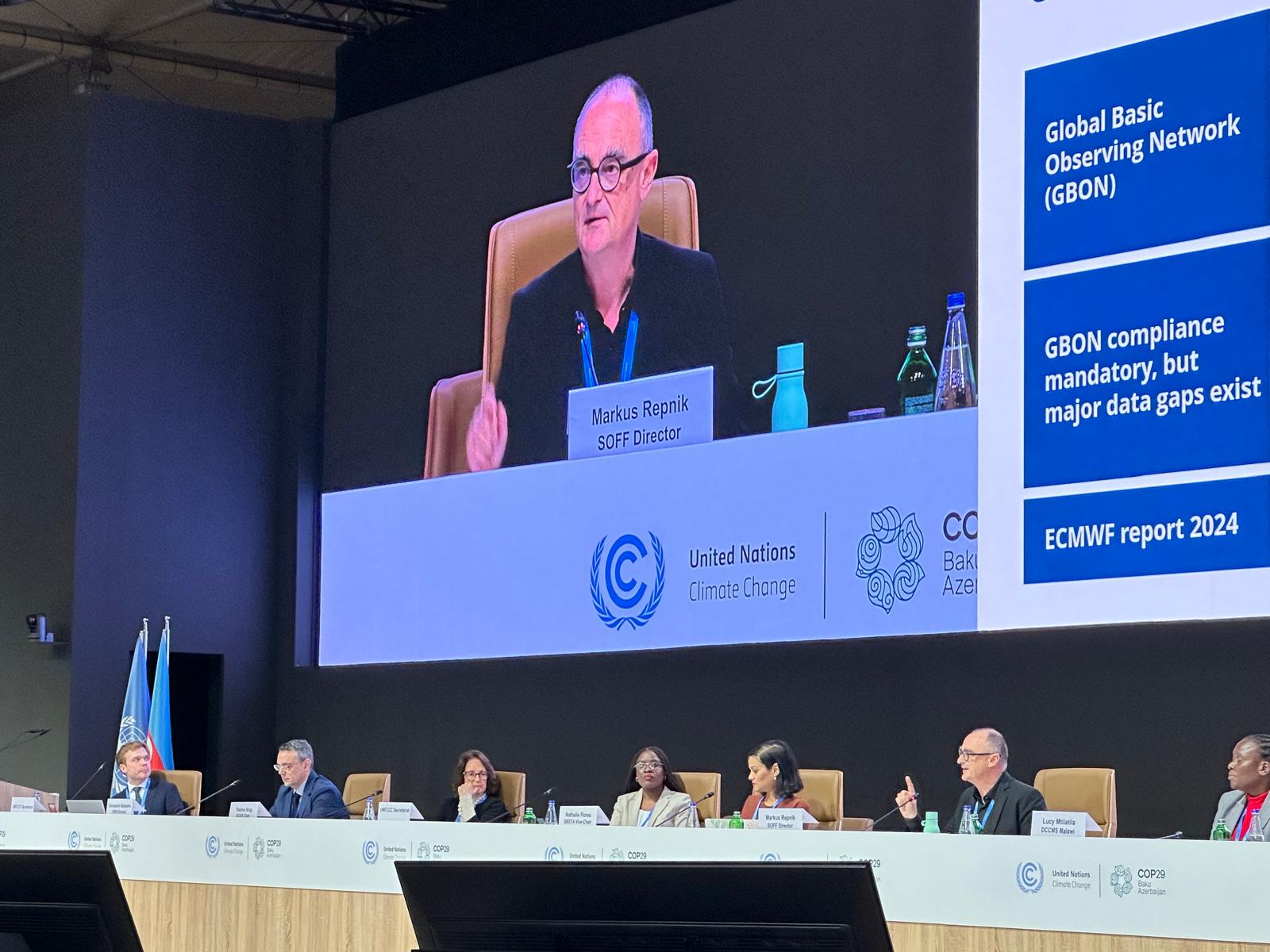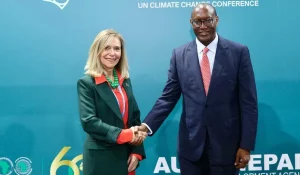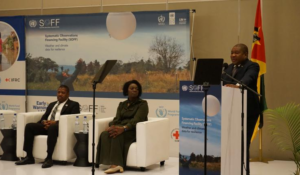Strengthening Climate Action: SOFF featured in COP29 Systematic Observation conclusions

At the 29th UN Climate Change Conference (COP29), SOFF was featured at the Earth Information Day and in the conclusions of the Subsidiary Body for Scientific and Technological Advice (SBSTA). The conclusions highlight the essential role of Earth observation systems in supporting climate adaptation, mitigation, and loss-and-damage efforts. The SBSTA noted with appreciation the support being provided for addressing gaps in systematic observation in developing countries and SOFF continued efforts, inviting SOFF to consider extending its support to more countries. It encouraged Parties and relevant organizations to further strengthen their provision of support to the systematic observation community.
Calling for a new partnership: SOFF is innovating finance and country support for systematic observation
At the COP29 Earth Information Day 2024, Markus Repnik, Director of the SOFF Secretariat, presented an update on SOFF’s innovative approach in closing critical gaps in basic systematic observation. The intervention on “Bridging Observation Gaps: Role of SOFF and Innovative Financing Models” highlighted three key points:
Closing major systematic observation gaps
The Global Basic Observing Network (GBON) was established by 193 members of World Meteorological Congress. All countries must comply with the network requirements, but major gaps exist. Small Island Developing States (SIDS) and Least Developed Countries (LDCs) only have 9% compliance of surface stations. Africa has fewer compliant surface stations than Germany. Fragile and Conflict Affected States have 7 compliant surface stations in 39 countries. According to the European Centre for Medium-Range Weather Forecasts (ECMWF), investing in surface-based observation is highly beneficial, and investing in data sparce regions has the largest impact.
SOFF, a new United Nations climate fund that delivers at speed and scale
Created at the request of the World Meteorological Congress by WMO, UNDP and UNEP, SOFF is a unique climate fund that exclusively focuses on systematic observation, providing open-ended grant financing and long-term peer-to-peer technical assistance. A total of 101 countries have requested support from SOFF, highlighting the commitment of the Global South to deliver its share to the Global Basic Observing Network. Already 66 countries are programmed for SOFF support, with 60 countries receiving initial support and 18 countries already with approved investment funding totalling to USD 115 million. Upon closing their basic observation gaps these 18 countries are expected to share 20 times the amount of weather and climate data compared to levels before SOFF support.
A new systematic observation partnership with the Global South
A new partnership for systematic observation is critical, a partnership that SOFF is contributing to. Firstly, investments in systematic observation are needed where it matters the most, in countries and regions with the largest data gaps, in the Global South. Secondly, basic weather and climate data need to be valued as a global public good, through the provision of long-term, grant-only financial support for the generation and exchange of such data. Thirdly, this requires a new partnership with the Global South, a partnership not built on “aid” but on equal footing, a partnership that recognizes and values the important contributions of the Global South to the global observing system.
12 initial funders are already contributing to the SOFF United Nations fund. Yet, for SOFF to deliver on the COP29 SBSTA conclusion and respond to high country demand, additional resources are needed. SOFF aims at mobilizing support from further bilateral and multilateral funders, envisions to issue a SOFF outcome bond, and in collaboration with the Green Climate Fund plans to develop a Fragile and Conflict Affected States Accelerator Programme.
Watch the Presentation of SOFF
Copyright: UN Climate Change/COP29 webcast
Watch the full live stream of the whole Earth Information Day 2024 here.
YOU MAY ALSO LIKE...






